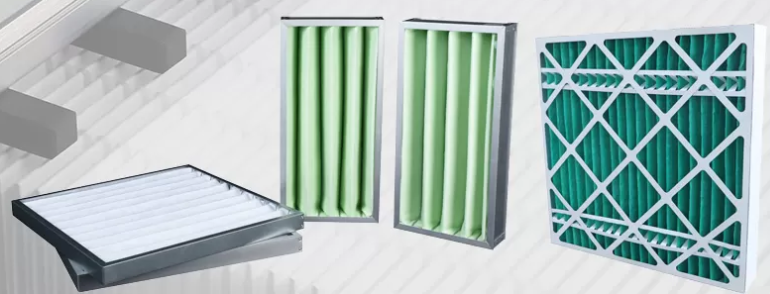How to Determine When to Replace the Primary Efficiency Air Filter?
An air filter is an essential component used to protect workshops and HVAC systems. In clean rooms and ventilated air conditioning systems, the primary efficiency air filter plays a role in filtering out dust and particles from the air. Over time, the filter will gradually accumulate dust and block airflow. Therefore, regular inspection and replacement of the primary efficiency filter are particularly necessary.
To help everyone determine whether the primary efficiency filter needs replacement, we have compiled some simple and practical methods for inspection, as follows:
1. Visual Inspection:
Firstly, we can visually inspect the condition of the primary efficiency filter. Open the filter cover and carefully observe whether there is a significant accumulation of dust and particles on the filter surface. If the filter is visibly blocked, it indicates the need for replacement.
2. Pressure Differential Test:
When the primary efficiency filter is in normal operation, it will present a certain level of resistance. Pressure differential is a measure of the resistance. Use a pressure gauge to measure the pressure difference between the inlet and outlet of the primary efficiency filter. If the pressure difference exceeds the maximum allowable value specified by the manufacturer, it is time to replace the filter.
3. Dust Particle Detection:
Utilize a dust particle counter or laser particle counter to measure the quantity of dust particles inside the primary efficiency filter. According to equipment requirements, if the particle counter detects a quantity of particles exceeding a certain standard, it indicates that the primary efficiency filter needs replacement.
4. Anemometer Inspection:
An anemometer is a specialized testing device that can measure air velocity and pressure differential. By using an anemometer to measure changes in air velocity and pressure differential of the primary efficiency filter, one can assess the filter's resistance condition. If resistance significantly increases, it indicates that the primary efficiency filter requires replacement.
By employing these simple and practical inspection methods for the primary efficiency air filter, we can determine whether it needs replacement. Regularly monitoring the status of the filter and replacing it in a timely manner ensures the normal operation of workshops and HVAC systems, providing clean and healthy air.
Air filters, especially primary efficiency filters, play a crucial role in maintaining clean rooms and ventilated air conditioning. Damage to these filters can directly impact the subsequent stages involving Medium Filters and HEPA Filters. Hence, regular inspection and replacement of filters are of utmost importance. Hopefully, the aforementioned simple inspection methods can assist everyone in creating cleaner workshop environments and fresher air!
